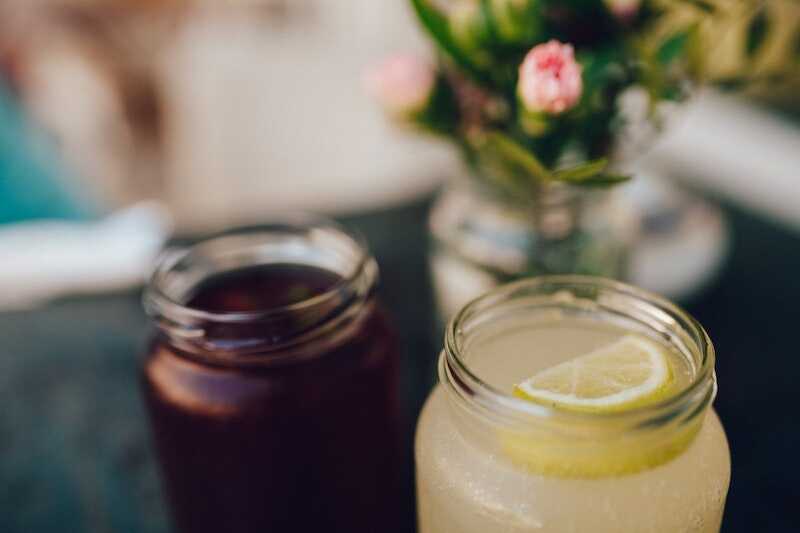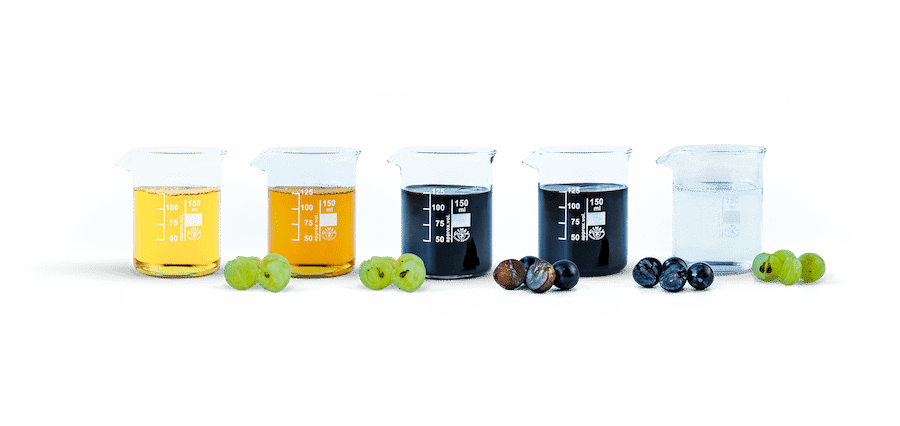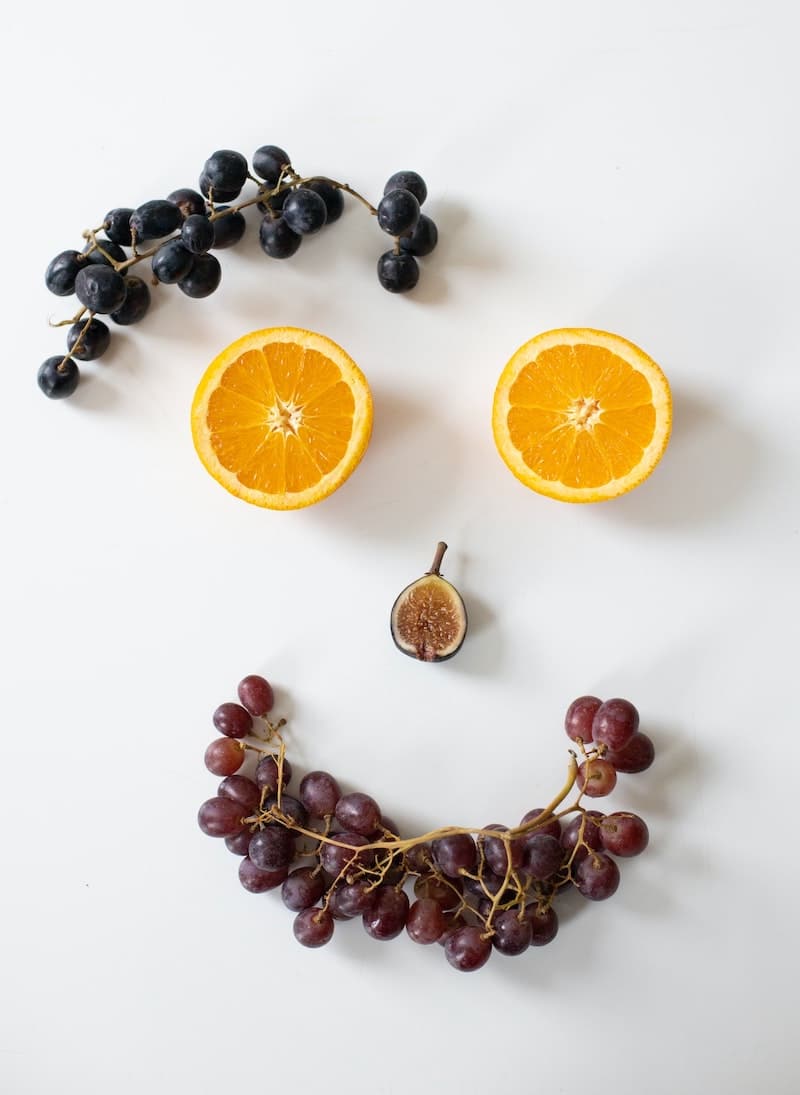The growing demand for healthy food is increasingly driving the global market for fruit juice concentrates. These types of juices represent a nutritious and cost-effective alternative for various applications in the food and beverage industry. In addition to providing sweetness, flavour, vitamins, minerals, antioxidants and other valuable micronutrients, they also offer a number of advantages, such as increased shelf life and reduced storage and transportation costs.
In this post we explore concentrated grape, apple, pear, orange and strawberry juices. We delve into their applications in the industrial sector to produce food and beverages, as well as their main nutritional data and the most notable benefits they provide to the organism.
- What exactly is a fruit juice concentrate and how is it obtained?
- The role of fruit juice concentrates in the food and beverage industry
- How to obtain 100% natural grape juice concentrate
What exactly is a fruit juice concentrate and how is it obtained?

Concentrated juices are fruit juices that have had most of their water content removed by methods such as evaporation, freezing or membrane technology. They are high viscosity (thick) liquids with the natural flavour and colour of the fruit and retain the same nutritional benefits of a non-concentrated juice (NFC). They are healthy choices when made from 100% fresh fruit grown under sustainable practices, without chemicals or genetically modified organisms, and contain no added sugars or preservatives to extend shelf life or improve taste.
Therefore, these fruit juice concentrates, in addition to being used as flavourings, sweeteners and enriching ingredients in food and beverages, can also help to preserve a product’s clean label and enhance its appeal to consumers, while keeping logistical costs to a minimum. This is why they are widely used in the beverage, bakery, confectionery, brewery, etc. industries.
The role of fruit juice concentrates in the food and beverage industry
Here are 5 of the most commonly used fruit juice concentrates in food and beverage production.
1 Orange juice concentrate – the king of citrus fruits
This is the concentrate with which most consumers are familiar. It has a deep orange colour and retains the flavour, aroma and sweetness of fresh oranges. It has a syrup-like consistency, with a concentration between 59° and 65° Brix.
- It is widely used to provide natural orange flavour and to add a citrus burst to confectionery, cakes, desserts, bakery products, soft drinks, jams, syrups, etc.
The main micronutrient in concentrated orange juice is vitamin C, which supports a healthy immune system, protects cells, skin and mental health, and reduces tiredness and fatigue. It also contains, to a lesser extent, thiamine (B1) and folate (B6), which help the heart function properly; flavonoids, which regulate blood pressure and protect against cancer; and lutein and zeaxanthin, which fight memory degeneration and promote eye health.
2 Strawberry juice concentrate: sweetness and colour
With a deep/medium red colour and the characteristic sweetness of ripe strawberries, this concentrate has great versatility in the market. It has a viscous and smooth texture, with a concentration of approx. 65° Brix. Among its benefits are that it is rich in vitamin C and antioxidants, so it helps to maintain a healthy immune system, supports skin health and helps the overall well-being of the body.
- It is widely used as a flavouring agent and to improve the taste of many beverages and foods, such as jams, ice cream, soft drinks, syrups, desserts, yoghurts, fruit preparations. It is even used to enhance the texture of cakes, muffins and other desserts.
- Thanks to its vibrant colour, this juice concentrate, like red grape must, is an incredible choice for enhancing the visual appeal of products.
3 Apple juice from concentrate: maximum versatility
Apple juice concentrate is a great source of vitamin C, antioxidants and other nutritional components present in the fruit. It has a smooth texture, an amber to dark brown colour and a very sweet taste. Its enormous versatility is due to the fact that its colour, flavour profile and diverse microbiological properties make it easy to adjust to various industrial applications. For example:
- It is a concentrate with multiple industrial applications, used in the production of soft drinks, alcoholic beverages (beers, wines, cider, etc.), vinegars, jams, sauces, etc.
- For example, it is widely used as a flavouring agent and natural sweetener in a number of food products, such as milkshakes, syrups, yoghurts, dairy products, sweets, etc.
- It is also used to improve and enhance the flavours of other fruits, in juices, preserves or salads.
4 Pear juice concentrate: a soft and fresh touch
This concentrate is an easy and cost-effective way to add pear flavour to a wide range of food and beverage products, such as baby food. It comes as a clear thick liquid or in a more natural cloudy format (yellowish-brown or reddish-brown). Its taste and aroma are typical of fresh pears, with an approximate concentration of 70° Brix.
Pear juice concentrate provides a subtle sweetness that enhances the natural flavours of foods. It is a concentrate with a high vitamin and antioxidant content, making it a healthy alternative for use as a natural sweetener, always in moderation.
- It is used in the manufacture of a wide variety of food products, such as sauces, marinades, cocktails, milkshakes and baked goods. It is even used as a substitute for apple or other fruit juice concentrate.
- It is also used to make bakery products, because it provides a pleasant taste and a moist texture.
5 Grape juice concentrate: the key to food innovation

This fruit concentrate facilitates the production of healthy products aimed at nutritious and natural diets. It is available in different presentations: white grape juice concentrate, red grape juice concentrate and high colour red grape juice concentrate, thus offering great versatility in the production of food and beverages.
- Grape juice concentrate contains 100% natural sugars and does not contain sucrose, which is why it is used as:
- Natural sweetener in the production of healthy products such as beverages, fruit juices and dietary supplements.
- Preservative in the production of jams and jellies from various fruits, such as figs and pineapples.
- It is used in the creation of functional foods. For example, in:
- Sports or energy drinks, thanks to their anti-inflammatory and antioxidant nutritional properties.
- Baby food, such as drinks for children. In addition to providing a broad nutritional profile, it naturally sweetens these products.
- It is also used to enhance the aroma and flavour of confectionery and ice-cream products, to colour food products naturally, to enrich and improve the texture of baked goods and to make wines and fruit juices.
White or red, concentrated grape juice preserves the fruit’s nutrients, vitamins and natural sugars, and is a rich source of vitamin C and minerals (phosphorus, iron, calcium, magnesium, potassium, etc.) that stimulate the immune system. It also contains a considerable percentage of antioxidants, such as resveratrol, which protect the body against cancer, heart disease and eye degeneration. It even contains polyphenols that help balance the intestinal microbiota.
How to obtain 100% natural grape juice concentrate
At Julian Soler we produce and export our concentrated white and red grape juices to all continents. We are pioneers in the production of concentrated must free of additives, preservatives and allergens. We carry out a unique, environmentally friendly process.
In order to deliver a high quality grape juice concentrate, we maintain traceability of our product from the vineyard to the customer. We use as raw material only fresh grapes grown and harvested in our own vineyards and those of local farmers. The grapes are squeezed and pressed at our facilities. The must obtained is processed by evaporation under vacuum until it reaches a concentration between 65 and 68° Brix. During this operation, the juice is filtered multiple times through polypropylene membranes. As a result, we obtain a 100% authentic concentrated grape juice, which preserves the grape’s natural acids, colourings and sugars.
In addition, we contribute our know-how and cutting-edge technology to drive innovation together with our customers. We have our own laboratory and R&D&I department to create high added value solutions that meet the demands of the end consumer.
Ask us for a sample or a no-obligation proposal. We are your Global Grape Solution supplier, we reach any part of the world.




 by
by